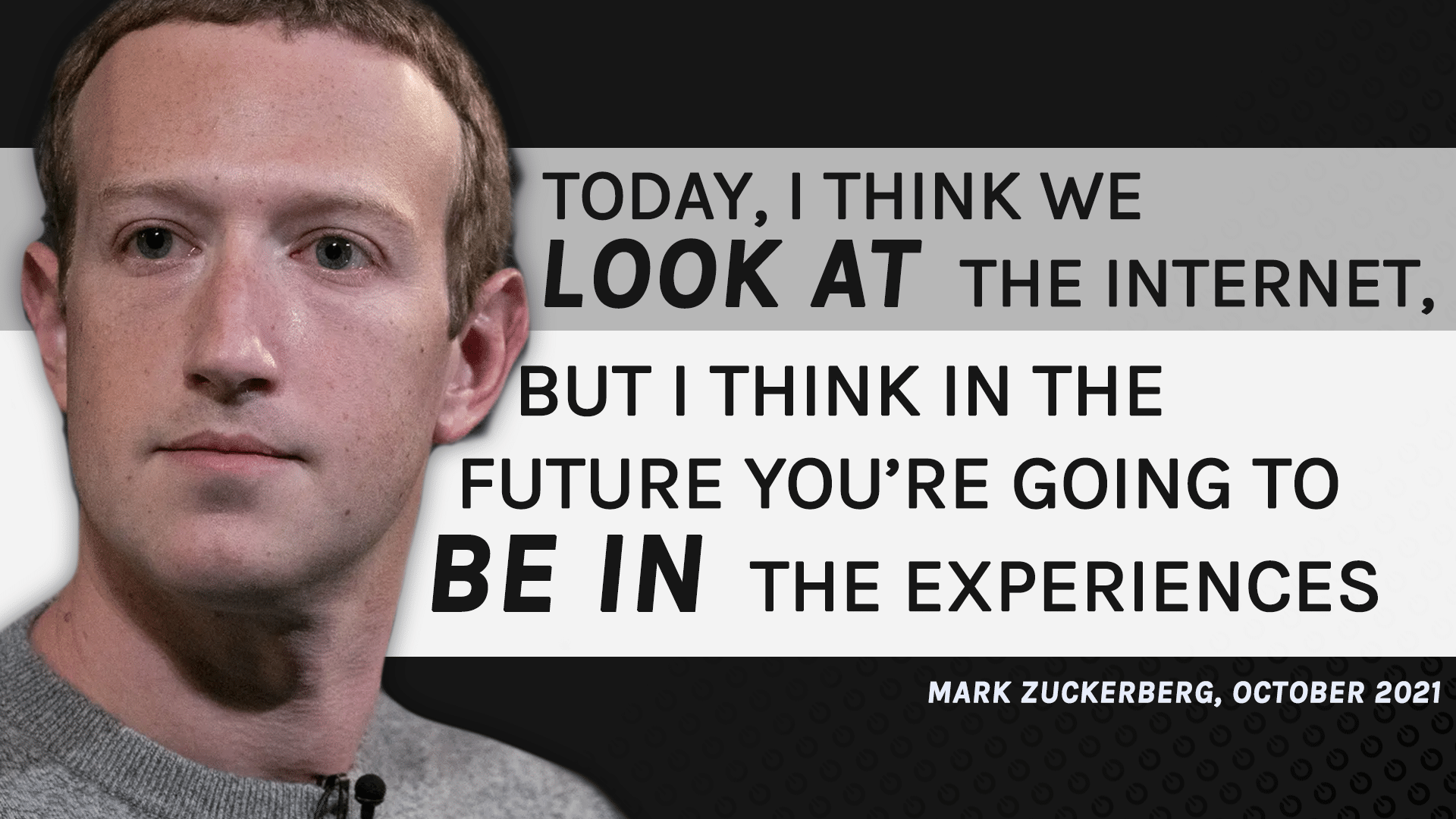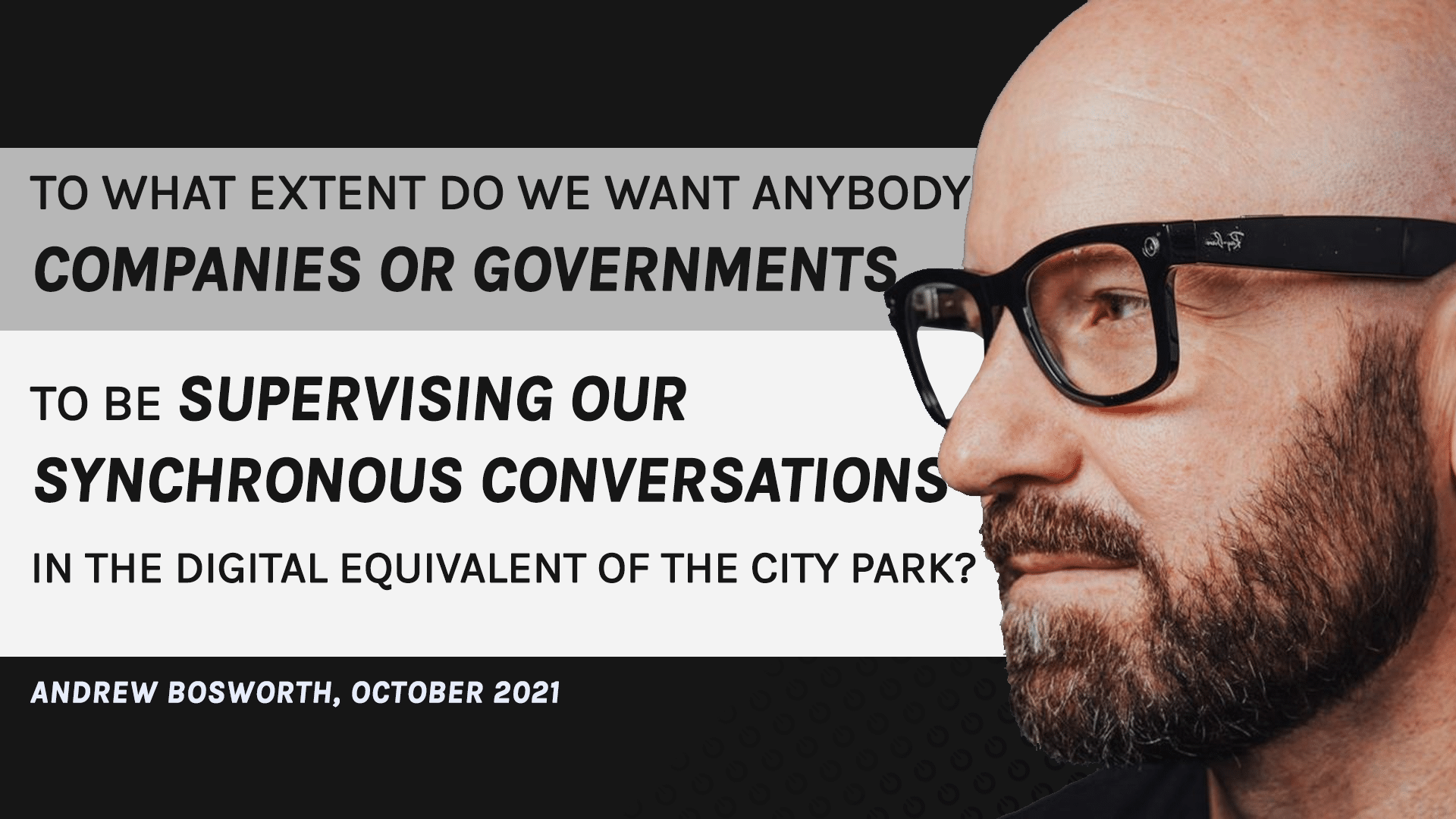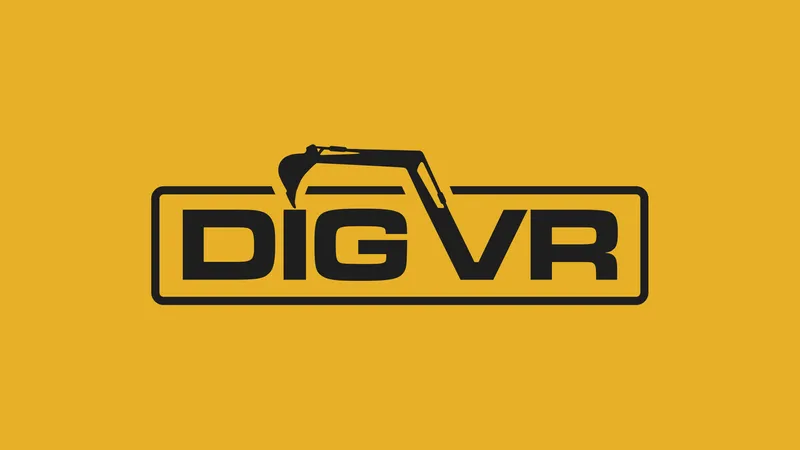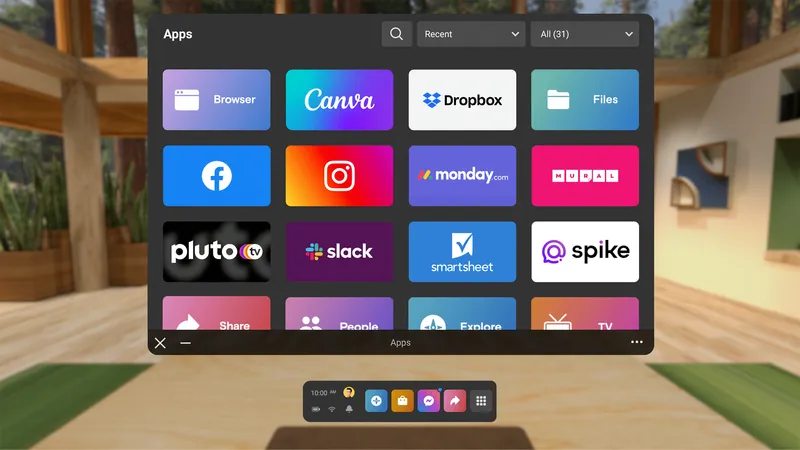Lots of people are talking about “the metaverse” after some tech companies laid claim to the term in recent months. Here’s what Mark Zuckerberg, Andrew Bosworth, and John Carmack have to say about the “metaverse” and their place in making it a reality.
The term “metaverse” originates from the 1993 novel Snow Crash by Neal Stephenson where it is described as “a computer-generated universe that his computer is drawing onto his goggles and pumping into his earphones. In the lingo, this imaginary place is known as the Metaverse. Hiro spends a lot of time in the Metaverse. It beats the shit out of the U-Stor-It.”
And then:
“Hiro is approaching the Street. It is the Broadway, the Champs Élysées of the Metaverse. It is the brilliantly lit boulevard that can be seen, miniaturized and backward, reflected in the lenses of his goggles. It does not really exist. But right now, millions of people are walking up and down it. The dimensions of the Street are fixed by a protocol, hammered out by the computer-graphics ninja overlords of the Association for Computing Machinery: Global Multimedia Protocol Group.”
Nearly 30 years after those words were published we see Fortnite, Roblox, Minecraft, Rec Room, VRChat, and others building out systems very much resembling Stephenson’s description of this “metaverse.” And since 2014, with the acquisition of Oculus VR for billions of dollars, Mark Zuckerberg has been continually sharpening his vision of building a company that could play a major part in the next generation of personal computing. Zuckerberg and soon-to-be chief technology officer Andrew Bosworth think a lot of people will be wearing computerized goggles and glasses before the end of the decade, and they want Meta to play a role in shaping its use.
This year, with more than 68,000 employees, he expects the investment in this specific vision to cost them $10 billion in profits, an amount that’s likely to increase annually for the next several years. Meanwhile, socially aware apps like Horizon Home, Horizon Worlds, and Horizon Workrooms are the organization’s latest efforts to realize “distance defying” technology not just on headsets, but eventually across a wide range of devices.
Here are recent comments Zuckerberg and Bosworth made in a call with journalists ahead of Connect which summarize just how significant a change society is in for when these technologies become commonplace. Plus, there’s a bonus comment below from John Carmack, Independent AI Researcher and “Consulting” guide to “Oculus VR”.
What Is The Metaverse?
Mark Zuckerberg, October 2021:
“We see the metaverse as the successor to the mobile internet…the kind of differentiating and defining factor of it is that it can help deliver a sense of presence…being able to be present at work no matter where you want to live without a commute, being able to go to a concert with a friend instantaneously, being able to teleport as a hologram into your parents’ living room to catch up with them…it’s like an embodied internet. Today, I think we look at the internet, but I think in the future, you’re going to be in the experiences…we view our role here as helping to stitch together some of these things.

Andrew Bosworth, October 2021:
The watch word of the metaverse is continuity. The feeling that when you go from one place to another place, there’s some things that… identity come with you. So avatars is important… your digital goods come with you…Can your friends come with you? Can you travel together? Can you stay in communication while you move from place to place?
The Metaverse Will Be Synchronous
Andrew Bosworth, October 2021:
The metaverse will be a largely synchronous experience. Whereas most of the technology being built today in content moderation is focused on asynchronous experiences. I think there’s real societal questions here. To what extent do we want anybody, companies or governments, to be supervising our synchronous conversations in the digital equivalent of the city park?
Muting Harassment And Always-On Body-Worn Cameras?
Andrew Bosworth, October 2021:
Can we keep a buffer of the last 10 or 15 seconds of interaction? And if you report that you are choosing basically to share that recording with an authority who can review it, that obviously has privacy implications for both parties. And so that’s something as an idea that we have, but… we have to have a conversation as a society. What are the privacy and integrity trade-offs we want to make? And I do think they end up feeling very different than the ones we’ve made historically because so many of these experiences are going to be real time. The degree to which we want surveillance is probably low but that also means the number of guarantees we can make are limited, but I do feel very confident that we can give very strong controls to each individual to control their environment, to control their ability to feel safe and secure in their own experience by virtue of just the power of things like muting, which are disproportionately useful in these environments.
For some context here check out a recent conversation with ITIF policy analyst Ellysse Dick:
John Carmack And Architecture Astronauts
Now John Carmack, who these days describes himself as an Independent AI Researcher as well as a “Consulting” guide to “Oculus VR”, doesn’t have an actual say in Meta’s strategy. Still, Carmack has been contributing to the VR efforts at Oculus for a very long time and he does, on occasion, openly speak his mind. This week during his annual a stream of consciousness talk Carmack shared some thoughts about Facebook and Oculus attempting to build the Metaverse:
“I was quoted all the way back in the nineties as saying that building the metaverse is a moral imperative. And even back then, most people miss that I was actually making a movie reference, but I was still at least partially serious about that. I really do care about it and I buy into the vision, but that leaves many people surprised to find out that I have been pretty actively arguing against every single metaverse effort that we have tried to spin up internally in the company from even pre-acquisition times. You know, I want it to exist, but I have pretty good reasons to believe that go setting out to build the metaverse is not actually the best way to wind up with the metaverse. And my primary thinking about that is a line that I’ve been saying for years now, in general relation to my arguing against these efforts, is that the metaverse is a honeypot trap for architecture astronauts and. Architecture astronaut is a kind of chidingly pejorative term for a class of programmers or designers that want to only look at things from the very highest levels, that don’t want to talk about GPU, micro architectures or merging network streams, you know, or dealing with any of the architecture asset packing, any of the nuts and bolts details, but they just want to talk in high abstract terms about how well we’ll have generic objects that can contain other objects that could have references to these and entitlements to that and we can atomically pass control from one to the other. And I just want to tear my hair out at that because that’s just so not the things that are actually important when you’re building something. But, um, you know, but here we are, Mark Zuckerberg has decided that now is the time to build the metaverse. So enormous wheels are turning and resources are flowing and the efforts definitely going to be made. So the big challenge now is to try to take all of this energy and make sure it goes to something positive and we’re able to build something that has real near-term user value because my worry is that we could spend years and thousands of people possibly and wind up with things that didn’t contribute all that much to the ways that people are actually using the devices and hardware today. So my biggest advice is that we need to concentrate on actual product rather than technology architecture or initiatives.”
If you missed anything from Connect 2021 you can catch up with this video supercut:


























